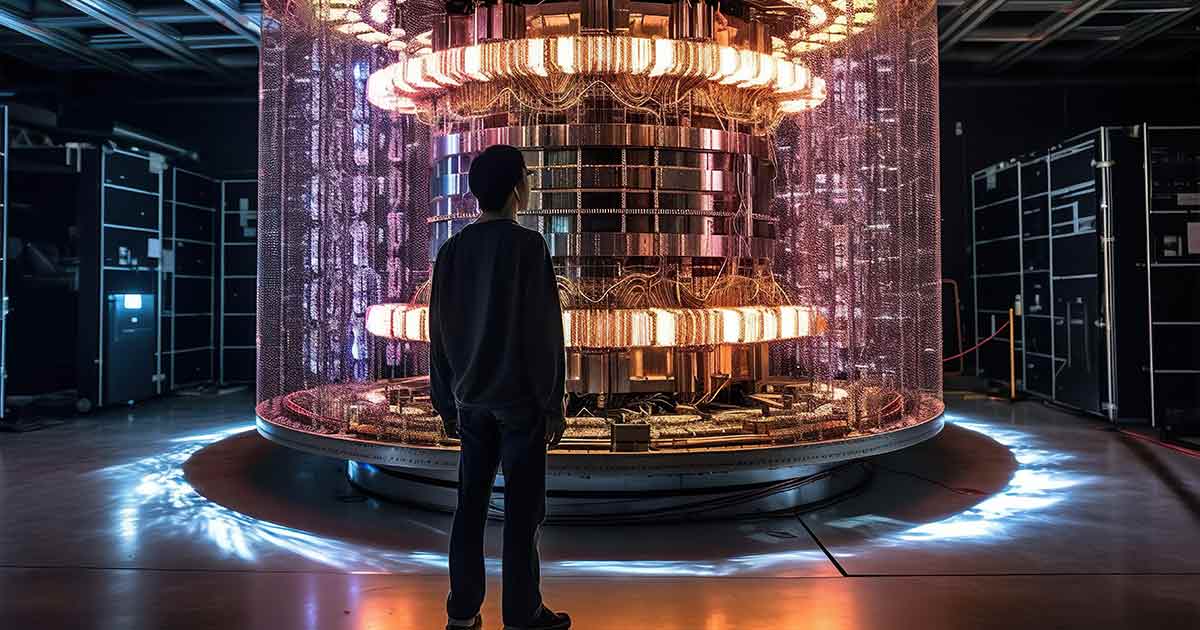News Blast: Your Daily Update
Stay informed with the latest news and trends.
Quantum Quirks: Why Your Next Computer Might Be a Particle
Discover how quantum particles could revolutionize computing! Dive into the quirky world of quantum quirks and the future of technology.
The Basics of Quantum Computing: How Particles Can Process Information
Quantum computing represents a revolutionary approach to processing information by leveraging the principles of quantum mechanics. Unlike classical computers, which use bits as the smallest unit of data (represented as 0s and 1s), quantum computers utilize qubits. These qubits can exist in multiple states simultaneously due to a phenomenon known as superposition. This capability allows quantum computers to perform complex calculations at unprecedented speeds, tackling problems that would be infeasible for traditional computers.
Moreover, quantum computing harnesses another fundamental principle called entanglement, where qubits become interconnected in ways that the state of one qubit can depend on the state of another, regardless of the distance separating them. This property enables quantum computers to solve problems through parallel processing, enhancing their efficiency. As researchers continue to explore the potential of quantum computing, we are only beginning to scratch the surface of what these remarkable quantum particles can achieve in fields such as cryptography, optimization, and material science.

Exploring Quantum Superposition: Can Your Next Computer Exist in Multiple States?
Quantum superposition is a fundamental principle of quantum mechanics that allows particles to exist in multiple states simultaneously. This concept challenges our classical understanding of the physical world, where objects are typically in one distinct state at any given time. In the realm of quantum computing, this principle holds immense potential. By leveraging superposition, quantum computers can process information in ways that traditional computers simply cannot, enabling them to solve complex problems faster and more efficiently.
At the core of quantum computing is the qubit, which is the quantum counterpart to the classical bit. While a classic bit can be either 0 or 1, a qubit can be both at the same time, thanks to superposition. This property greatly increases the computing power of quantum machines. As we explore the implications of quantum superposition, we find ourselves at the brink of a technological revolution where our next computers may not only process tasks concurrently but also tap into a myriad of possibilities inherent in their superposed states.
What Are Qubits and Why Are They Crucial for the Future of Computing?
Qubits are the fundamental units of quantum information, analogous to classical bits but with unique properties that empower quantum computing. Unlike a traditional bit, which can exist in a state of either 0 or 1, a qubit can exist in a state of superposition, meaning it can be both 0 and 1 simultaneously. This capability allows quantum computers to process a vast amount of data simultaneously, dramatically increasing computational power. In addition to superposition, qubits also leverage another property known as entanglement, which enables qubits that are entangled to instantaneously affect one another, regardless of the distance separating them. These properties make qubits a crucial component in tackling complex problems that are practically impossible for classical computers.
The significance of qubits in the future of computing cannot be overstated. As researchers work to develop quantum algorithms, the potential applications are becoming clearer, ranging from cryptography to drug discovery and optimization problems in logistics and finance. For instance, quantum computers equipped with qubits could revolutionize artificial intelligence by effectively analyzing massive datasets far more rapidly than classical systems. As the field progresses, the race is on to create more stable, scalable, and reliable qubits, which will pave the way for a new era of computing. The future of technology may very well hinge on our ability to unlock the full potential of qubits and harness them for advancements that were once thought to be science fiction.